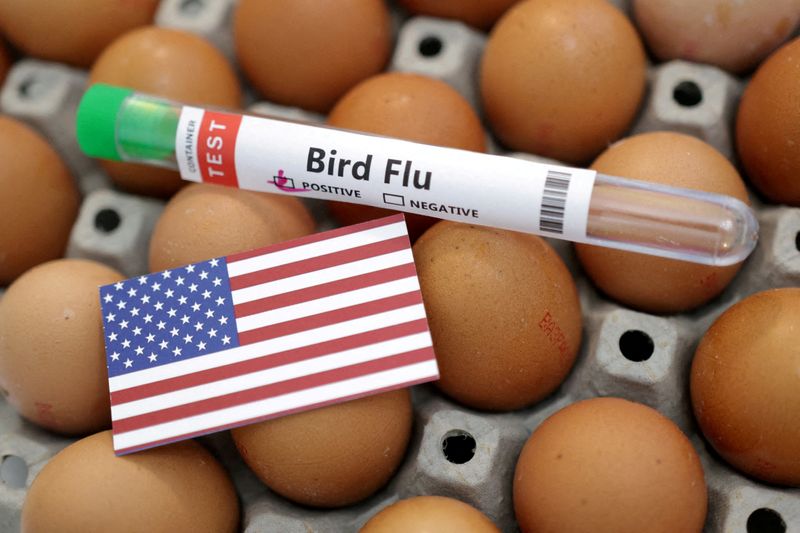By Leah Douglas
(Reuters) – The number of human bird flu cases in California may be undercounted because farmworkers are avoiding testing partly because of economic concerns, a union and a state expert said.
Since early October, bird flu has infected 15 workers on dairy farms in California, where the virus has spread rapidly to more than 130 dairy herds since August.
Farmworkers in California with symptoms similar to bird flu have avoided tests because they fear they would have to isolate at home without pay, said Elizabeth Strater, national vice president of the United Farm Workers union.
“There is a very significant undercount of cases because we don’t have a way to monitor who is sick because employees are unwilling to test,” Strater said.
The symptoms associated with human cases of the virus, such as fever and conjunctivitis, are not severe enough to risk loss of income, Strater added.
People who test positive for bird flu should isolate until public health officials determine they no longer pose a risk of spread, according to guidelines from the California Department of Public Health.
California State Epidemiologist Erica Pan acknowledged that there is a possibility of an undercount among workers.
“People with milder symptoms may not come forward for testing,” Pan said.
The state is working with a multilingual team from the U.S. Centers for Disease Control and Prevention in California’s Central Valley, where most of the cases have occurred, to investigate human infections of the virus, Pan added.

Farmworkers who contract bird flu on the job will be eligible for workers’ compensation, a spokesperson for the California Department of Industrial Relations said.
The CDC is spending $5 million on a seasonal flu vaccine for farm workers, hoping to reduce the risk that a worker would get bird flu and seasonal flu at the same time, which could lead to virus mutations that could make the disease spread more easily.


